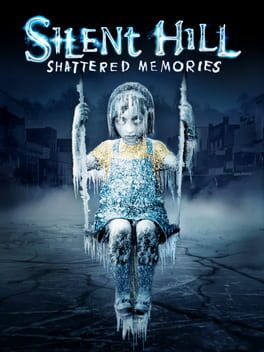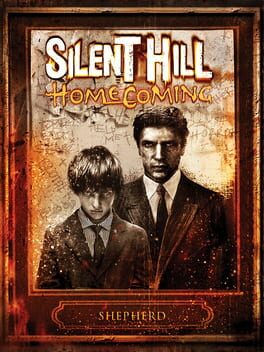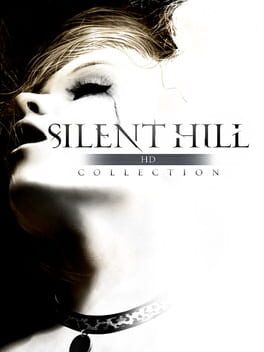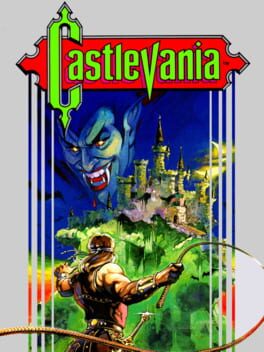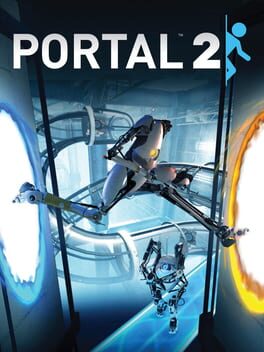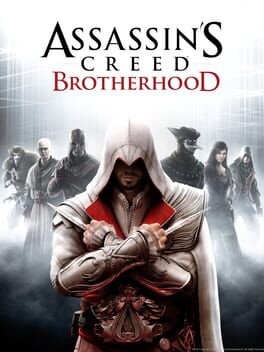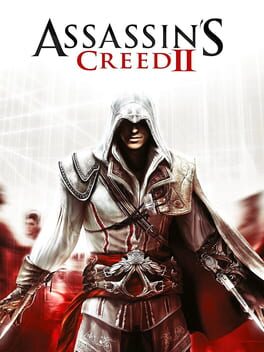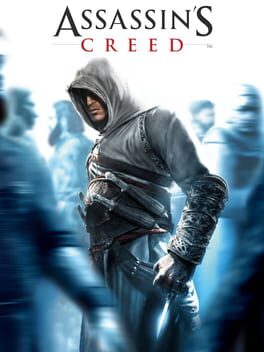The one thing that doesn't work with this game is how playfully meta it tries to be. Like so many games that put front their moral systems (systems that ought to remain invisible for their own effectiveness), this one counts the chickens before they hatch way too early. This is shame, because for my money, it's one of the most interesting Barlow prototypes. But it gets way too mangled by the exposition.
Puedes ver los momentos en que este juego casi lo consigue, en el que casi consigue tener identidad propia. Hay cosas en este juego que funcionan bien, algunos personajes casi dejan algún tipo de impresión, y los actores de doblaje están haciendo lo imposible para vender el guion. Hay veces que podrías tomarte esto como si fuera una versión un poco más intelectual de Dead Space. Pero no lo consigue.
-----------------------------------------------------------------------
You can tell the moments where this game almost makes it through. Where it almost has an identity. There are some things in the game that absolutely work, some characters that almost leave an impression, and the VAs are doing their best to sell it at all times. There are even moments where you could see this titles as a high-minded version of Dead Space. But it just doesn't come through.
-----------------------------------------------------------------------
You can tell the moments where this game almost makes it through. Where it almost has an identity. There are some things in the game that absolutely work, some characters that almost leave an impression, and the VAs are doing their best to sell it at all times. There are even moments where you could see this titles as a high-minded version of Dead Space. But it just doesn't come through.
En tanto que remake, es una desgracia absoluta. Como la única forma de jugar a algunos de los mejores juegos que existen, es una vergüenza. No puedo aportar nada que no se haya dicho ya, y me gustaría que la gente dejara de echarle la culpa a desarrolladores y productores que en última instancia no tienen la culpa de intentar arreglar algo que no se podía arreglar y en circunstancias tan malas.
-------------------------------------------------------------------------
As a remake, it's an absolute disgrace. As the only way to play some of the best games ever made, it's a shame. I really can't add anything that hasn't been said already, and I just wish people stopped piling on developers and produces whose only crime was trying to fix the unfixable in the worst circumstances.
-------------------------------------------------------------------------
As a remake, it's an absolute disgrace. As the only way to play some of the best games ever made, it's a shame. I really can't add anything that hasn't been said already, and I just wish people stopped piling on developers and produces whose only crime was trying to fix the unfixable in the worst circumstances.
It's definitely influential, but I wouldn't consider it as ground-breaking or relevant as future titles of the franchise (especially Aria of Sorrow). Still, it's a remarkable game that does a lot of things and, more importantly, creates an atmosphere to Dracula's castle that surpasses its condition as a big map with secrets. There are so many hidden things that you can find which make the world breathe, and you can customize Alucard's look in ways that feel very forward-thinking for the time. Still, the game has a little too much stuff than it needs, and by the time you reach the second half, it becomes redundant very fast. Besides, the extra modes are stupid. I would recommend playing it for the influence alone, but I wouldn't hail as a masterpiece.
1986
This remains a masterpiece even after all these years. A very compact, briskly paced, challenge-heavy game that submerges you in a rhythm of walking, jumping and whipping that feels effortless once you gather enough patience to master. Despite its very abrupt spike in difficulty after the third stage, the game feels like it nails how long it needs to last before it becomes stale, and as such, no level feels redundant or wasted. Adding to that the lavish pixel art and the very carefully selected colors and we have a classic that deserves to be played again and again.
1996
It's still very good, even after all these years. I don't give a toss about its camera, its expansion on the DS or even the fact that I had to play it in French when it came out. It's still a very good game that is able to do a lot more with 3D platforming than half the titles of today. Maybe because it sat at the verge of a paradigm shift, it feels like this game is figuring out everything as it's going, and in the process it's trying all sorts of things. Still, it does not feel as polished or presentable as many titles that would come later, which maybe gives it a more experimental vibe than most Mario titles.
2011
The co-op is the only thing that's really worth about this. The sequel feels like it indulges a bit too much on Portal's well-deserved accolades, and the jokes aren't even half as good as the original. Also, the new mechanics don't allow as much room for experimentation as the original (which didn't allow that much to begin with). Still, the ending is okay.
2007
It is very, very good. Much better than Half-Life 2, and because of its original status as an afterthought in the Orange Box, it still feels subversive to this day. It's got great control and it very much set the blueprint for the "Purity of Design" ethos that so many indie games carried onward. Still, it's not as innovative as it was set out to be and it's still very much a niche genre that many people wouldn't be able to enjoy unless they were highly knowledgeable of the medium, so it's not the "ideal intro to videogames" that many have claimed it is.
2015
My fanboyism has waned over the years, but I can't deny that this game had a profound impact on me. I do think its design isn't half as innovative as it was hyped up to be during the Game Awards, but as a competent Earthbound clone that is able to display its own personality, I think it works fine. Also, the true ending still gets me to this day, and while its message might have been muddled, the decision to make the No-Mercy Route as boring as possible is still a good design choice.
By all accounts, this is a sequel to Assassin's Creed II's worst tendencies, and unfortunately, it marked the course of subsequent AC entries for a while. Collecting is favored to visiting locations, dungeons and challenges are less varied, and the story takes a quick dive that it won't recover from. Ezio gets ascended from gifted Assassin to figure-that-inspires-Machiavello-to-write-the-Prince (which is such a crass way to pander players that I haven't recovered from it yet). It's a shame that this is the best looking game of the franchise thus far, because its appeal is thoroughly wasted here.
2009
A mostly okey title that does everything it sets out to do right. It's a shame that nothing of it feels interesting to me. As a sequel to the original, it feels less close to Assasin's Creed 1 than it does Prince of Persia, especially if we go by the tone. It also feels closer to The Da Vinci Code than The Kingdom of Heaven, which flushes all the themes of the original game down the toilet. Still, it's a fun ride if you can stand Ezio's shenanigans and the collecting.
2007
It's difficult to remember that this was, at the time, a pretty effective response to the then-prevailing open world ethos that allowed you to do whatever. It's a shame that the game feels like a demo most of the time, because it has the most potential of all the franchise (which I know doesn't say good things about the rest of the titles) by bringing together its future and past scenarios into a unified theme.
